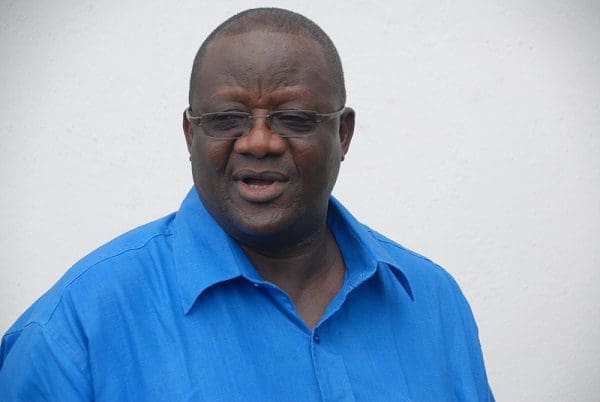Former New Patriotic Party National Chairman Paul Afoko has revealed details about the intense opposition he faced during his rise to party leadership, including vote-buying allegations and personal attacks that continued even after his decisive victory.
In a recent interview with Starr FM, Afoko reflected on the challenges that marked his tenure as NPP chairman before his controversial indefinite suspension in 2015. The suspension came amid allegations that he had undermined then-flagbearer Nana Akufo-Addo during the lead-up to the 2016 elections.
“For those who opposed me, those who didn’t want me to be chairman and fought me all the way, as I said, vote buying, mudslinging, lies being told, all of that, I still won with a huge majority. They never gave up,” Afoko recounted during the interview.
The former chairman described facing mockery even after his electoral victory, recalling how opponents dismissed his leadership ambitions. “I was told that one of them said, ‘Osee obidi Chairman, y3 k) Nkran, obi di Chairman n3 y3n why3’ (He says he wants to be a chairman, we’re going to Accra, he should come there and be the chairman what). He’s still alive, and he knows himself,” Afoko remarked.
Following his election as party chairman, Afoko said he was determined to implement structural reforms to reshape the NPP’s image and strengthen grassroots operations. His most significant initiative involved establishing financial systems at the constituency level.
“I insisted on every constituency in this country opening a bank account, and I pushed 10,000 cedis into every single constituency,” he revealed. This reform faced strong resistance within the party’s executive structure, with critics questioning the wisdom of direct financial support to constituencies.
The initiative reflected Afoko’s broader vision for party transformation. “I didn’t want this party to continue being seen only as a massive party of the people. I wanted reforms,” he explained, indicating his desire to modernize the party’s operations and structure.
However, his reform efforts met significant internal opposition. “Yes, and I was opposed strongly, even within the executive. Why? Why should you be sending the money to constituencies? Oh really? No, no, no, don’t do that. But I said it was the right thing to do,” Afoko stated.
The comments come weeks after the NPP announced a general amnesty lifting suspensions and halting ongoing disciplinary proceedings against various party members, including Afoko. The party’s Acting National Chairman, Danquah Smith Buttey, confirmed in an August 16 letter that all suspensions had been lifted as part of unity efforts.
However, Afoko has rejected the amnesty conditions, arguing that genuine reconciliation should be unconditional. “If you want everybody to come together you don’t give conditions. It should be unconditional,” he stated in a separate interview, indicating his continued dissatisfaction with party leadership approaches.
The former chairman’s suspension in 2015 marked a turbulent period in NPP internal politics, with tensions arising over various issues including early primaries and financial management for parliamentary primaries. His critics accused him of being an NDC mole within the party, allegations he has consistently denied.
Afoko’s tenure as chairman was characterized by conflicts with party hierarchy, particularly over his handling of various party matters that some members believed undermined the party’s electoral prospects. These tensions ultimately led to his removal through an emergency meeting of party executives.
The recent interview provides Afoko’s perspective on events that shaped his controversial chairmanship, offering insights into internal NPP dynamics during a critical period in the party’s history. His reflection on facing opposition and implementing reforms highlights the challenges of internal party leadership.
Currently focused on farming activities, Afoko has indicated limited interest in returning to active party politics despite the amnesty announcement. His comments suggest ongoing philosophical differences with current party leadership approaches, particularly regarding reconciliation processes.
The former chairman’s revelations about vote-buying allegations and internal resistance to his reforms provide context for understanding the factional struggles that have periodically affected NPP internal cohesion and electoral performance.
Source: newsghana.com.gh











